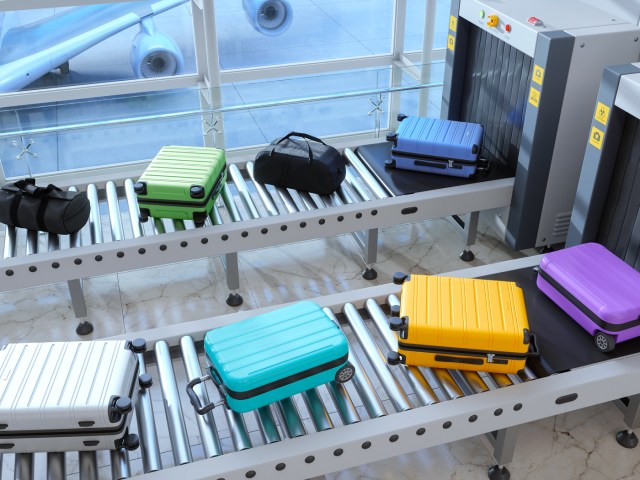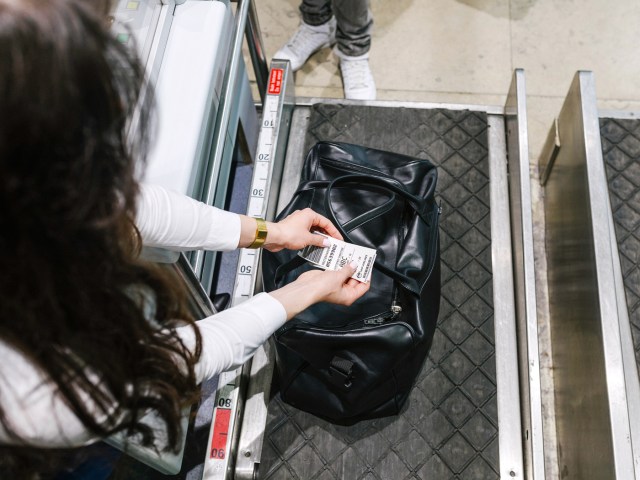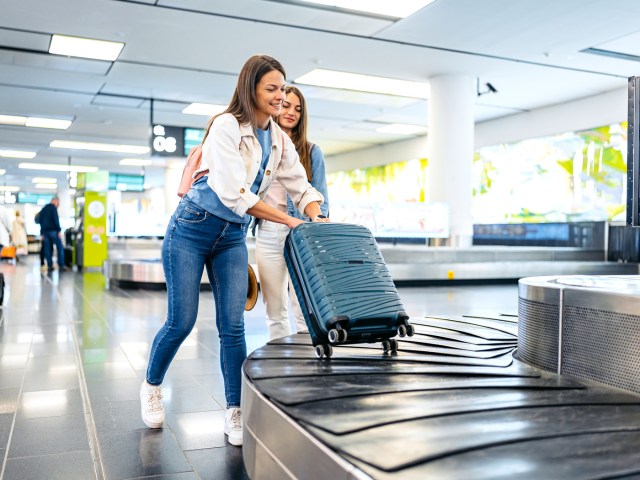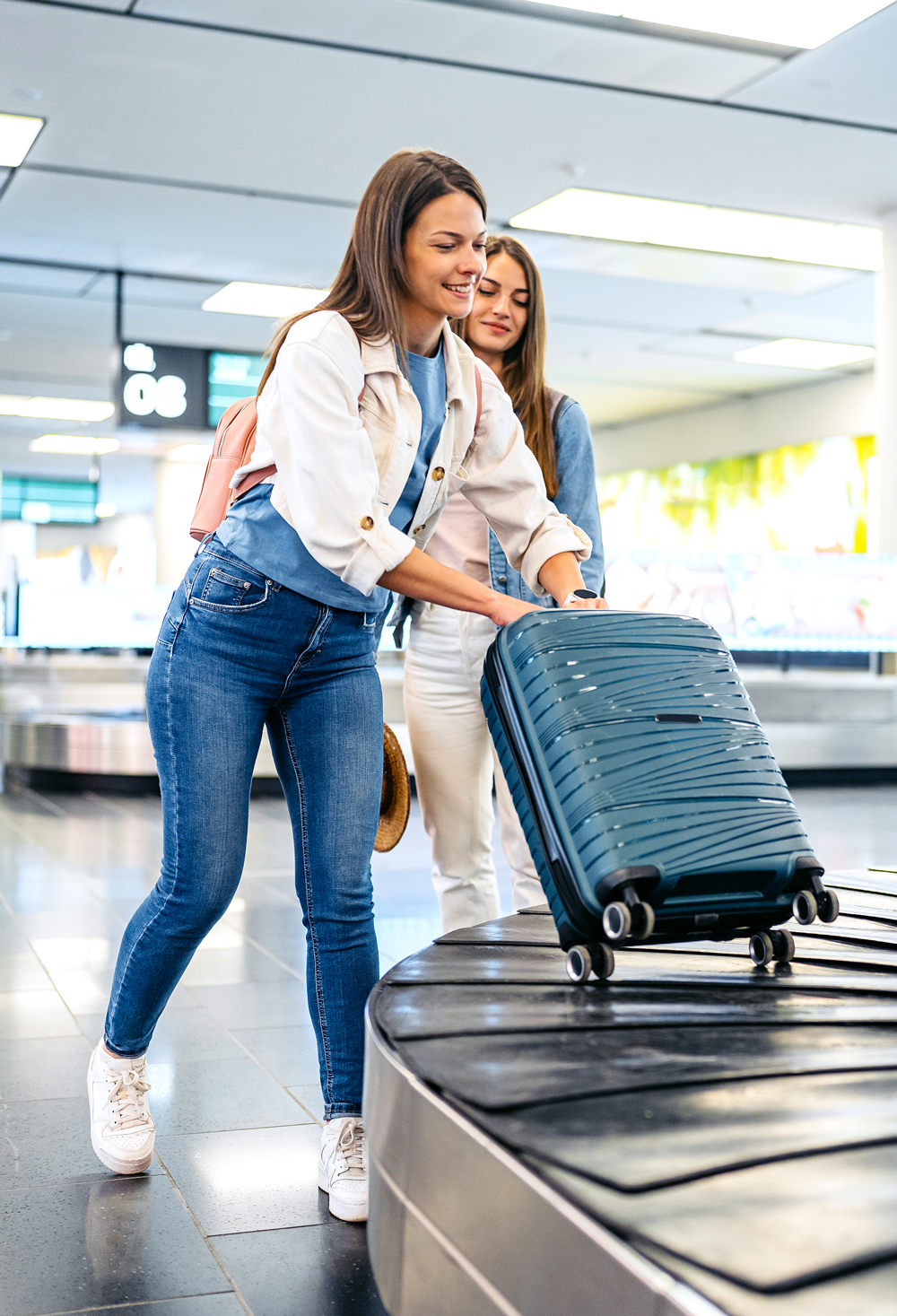Checking a bag on your next flight? Despite their unpopularity, baggage fees likely aren’t going anywhere soon. These dreaded fees have become a major revenue driver for airlines, to the tune of a whopping $33 billion in 2023 alone. In recent months, we’ve already seen increases in bag fees across the board — with one airline long known for offering free bags announcing plans to begin charging for them soon. Below, find out how much you can expect to pay for checked bags on your next flight, or better yet, how to avoid checked bag fees altogether.
Why Checked Bag Fees Are Increasing

To kick off 2024, Seattle-based carrier Alaska Airlines announced it was raising baggage fees from $30 to $35 for the first checked bag and from $40 to $45 for the second bag. This announcement started a trend, with other airlines soon matching Alaska’s increase.
This year, travelers on domestic flights can expect to pay $35 to $45 across the board — a 12% to 16% increase — for their first and second checked bags, respectively. (Bags — both carry-on and checked — often cost more on ultra-low-cost budget carriers such as Spirit and Frontier.) Fees can vary considerably for long-haul international flights, so be sure to check your airline’s website diligently.
Perhaps the biggest shakeup, though, came in March 2025, when Southwest Airlines announced that it was abandoning its longstanding model of “bags fly free,” which allowed most passengers two checked bags free of charge. For reservations booked on or after May 28, 2025, checked bag fees will apply to most customers, except those who hold elite status or a co-branded credit card.
Why the increase? According to the airlines, it comes down to costs. Delta said that its increase was its first time raising fees since 2018, and the higher amount reflects higher costs for transporting luggage these days. Southwest said it was leaving money on the table with its free bags policy — it was the last major airline not to charge for them, which the airline ultimately didn’t view as enough of a competitive advantage as it looks to reduce costs and boost profitability.
One Airline Introduces Surge Pricing for Bags

By now, travelers are used to dynamic or surge pricing thanks to companies such as Uber, but they’ll also have to get used to that idea when it comes to airline fees. New York City-based JetBlue Airways joined other airlines in early 2024 in increasing fees, but in April the carrier went one step further by introducing dynamic pricing for bags.
Now, the cost of checking a bag will vary according to whether you’re flying during what the airline considers a “peak” or “off-peak” period. As expected, peak dates cover major holidays such as Christmas and Thanksgiving but also most of summer travel (about half the year in total).
The good news is that if you plan ahead, you can save $10 by adding a bag at least 24 hours prior to your flight. Travelers who wait until the airport and are traveling during peak dates will pay as much as $50 for the first checked bag and $70 for the first checked bag.
How To Avoid Checked Bag Fees

The first answer may seem obvious: Try to fit more into your carry-on bag. That task becomes easier with these clever tricks — such as rolling your clothing instead of folding it — that promise to save valuable space and help you avoid checked bag fees altogether. (Plus, you won’t have to worry about the airline losing your luggage while on vacation.) If you do manage to fit enough in your carry-on but don’t want to deal with the hassle of finding overhead space, most airlines will let you check your bag at the gate free of charge.
Another option is to look for fare options that include a checked bag and other perks, which can often represent a greater value than buying those options a la carte. For example, American Airlines offers basic economy, standard economy (called Main Cabin, which includes a seat assignment and the ability to make ticket changes), and Main Cabin Extra. The latter option includes a few extra inches of legroom, plus one bag free of charge.
Finally, most major airlines offer co-branded credit cards that waive baggage fees for the cardholder and up to nine passengers traveling together on the same reservation. Though these credit cards typically charge an annual fee, the savings on bag fees for even just one or two trips could be substantial. For instance, in Southwest’s recent announcement about checked bag fees, the airline noted that those with a Rapid Rewards credit card would still be allowed to check one bag for free — along with up to eight additional passengers traveling on the same reservation.
The same goes for those who hold elite status (what Southwest calls “A-List”), which is similar to other airlines, which offer anywhere from one to three bags free, depending on your status tier. Even if you don’t have elite status yourself, if you’re flying with someone who does, their benefits extend to those on the same reservation. And of course, if you pony up for first or business class, you won’t have to worry about bag fees, either.
More from our network
Daily Passport is part of Inbox Studio, an email-first media company. *Indicates a third-party property.
















